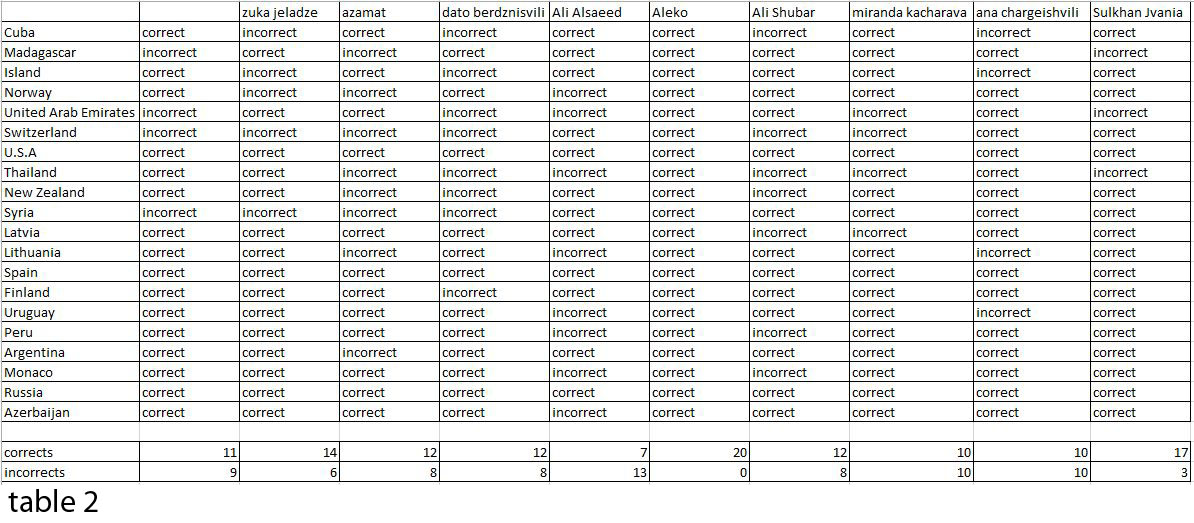Computer games are quite a useful for people. While playing people subconsciously gain piece of new knowledge. They become more open-minded. They also develop their general skills that helps them in their everyday life. Are also developed such features of character as patience and purposefulness. The Gamer will never finish the game utill solving the problem and reaching the target. We see the same is in everyday life. The Gamer in front of computer is like an engineer in front of his computer. They both will never be afraid of problems; they will do their best to solve them. Having reached his target the gamer gets his reward. On the other hand he greatly regrets having loosed. So the person gets strong phsycologically. The person gets used not to be afraid of the real life problems. He will never give up and will always do his best to solve the problem.
But we must consider, that the computer game may be called “the stick with the two ends.” On one hand you learn a lot while playing and on another hand if you play too much you can become very aggressive. According Douglas A. Gentile, games can have both positive and negative effects. It depends on the type of the game. The researchers show a number of attributes of the computer games that determine these effects [1,2].
The computer games are often attacked. For example, the European Parliament had been debating whether to limit children’s access to computer games. The parliament decided that games could affect harmfully on the children minds.
Psychologists being conducting well-designed researches are beginning to pour light on the actual effects of computer games. These researches show a clear trend: Games have many consequences in the brain, but most of them are not obvious. Because the effects are subtle, many people see in computer games the simple entertainment.
Research projects have relevant claims of both beneficial and harmful effects. On one hand, games may teach us new skills and on the other hand make as less sensitive to violence.
Well-designed computer games are real teachers. We may say that they distribute support and punishment. One of the best features of computer games is teaching the gamer to transfer knowledge or skills to the everyday life. Usually, people repeat actions while playing and this is one of the main conditions for long-term potentiation—the strengthening of brain-cell connections. It enriches the memory storage and develops the learning skills. In 1940 Canadian psychologist Donald Hebb already said, “Neurons that fire together wire together”.
We have developed an educational computer game called cities, that would increase student’s knowledge in Geography. The game has the following rules, one player has to name the city and another one must name the city, the name of which begins with the last letter of the pervious one. The gamer loses if the name of the city is wrong or does not begin with the necessary letter. The game has been developed in Python programming language. Before introducing the game we have made the survey of ten students and asked them to name the capitals of 20 countries. The results are shown below (table 1).
Afterwards we have made the same students to play the game for 10 days and repeated our survey. The got results are shown below( table 2).
Comparing the tables we see, that the students have improved their knowledge.
We have demonstrated our result in the graph in Python. It shows the dependence of average meaning of the results from time. See graph1:
Then we have calculated the coefficient of correct and incorrect answers number changing per day:
correct_coef = (correct_new-correct_old)/10
incorrect_coef = (incorrect_new-incorrect_old)/10
correct_new – is the average meaning of the new correct answers.
correct_old – is the average meaning of the old correct answers.
incorrect_new– is the average meaning of the new incorrect answers.
incorrect_old – is the average meaning of the old incorrect answers.
We have decided to make the simulation of this process in two future periods:
In 10-20 days, the number was generated randomly:
t1=random.randrange(10,20)
t1-first period.
In 20-30 days, the number was also generated randomly.
t2=random.randrange(20,30)
t2-second period.
We have calculated the number of corresponding correct and incorrect answers for the first period:
res1= correct_old +(correct_coef*t1)
res2= incorrect_old +(incorrect_coef*t1)
And we have also calculated the number of corresponding correct and incorrect answers for the second period:
res3= correct_old +(correct_coef*t2)
res4= incorrect_old +(incorrect_coef*t2)
The simulation’s graph examples of our results are shown on graph2 and graph3.
Graph2 reflects randomly got periods: t1=15; t2=24
Graph3 reflects randomly got periods: t1=12; t2=24
We have shown that playing the game in future will have great positive influence on students’ knowledge.
References
- Jan L. Plass, Paul A. O’Keefe, Bruce D. Homer, Jennifer Case, Elizabeth O. Hayward, Murphy Stein, Ken Perlin. The impact of individual, competitive, and collaborative mathematics game play on learning, performance, and motivation.. Journal of Educational Psychology, 2013; 105 (4): 1050 DOI: 10.1037/a0032688
- Barab SA, Scott B, Siyahhan S, Goldstone R, Ingram-Goble A, Zuiker S, and Warren S. 2009. Transformational play as a curricular scaffold: Using videogames to support science education. Journal of Science Education and Technology 18: 305-320

 View this article in Russian
View this article in Russian



